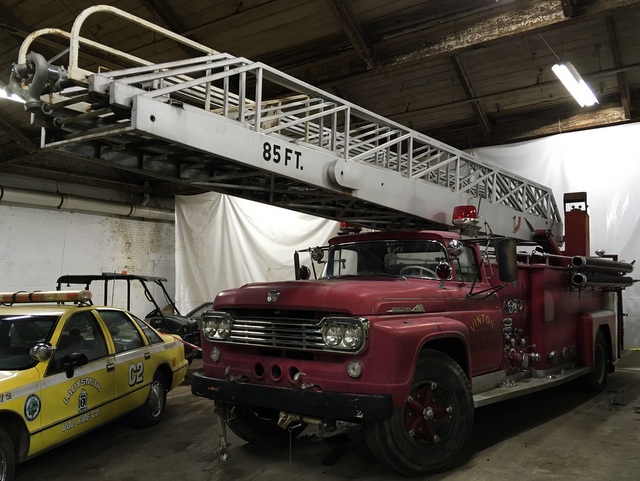My husband was lucky. We were lucky.
During his 38 years on the job as a firefighter, he only experienced two deaths related to his job. That was in 1985, two years after he'd become a firefighter. Captain Robert G. Cassell and Firefighter Harvey H. Helm died on November 1, 1985, from injuries received from a hit-and-run driver while responding to an automobile fire on Shenandoah Avenue.
That could have been my husband, lost in a fire before he retired. It could have been any of his friends, the people he worked with, who fell while working their job. I remember how upset my husband was over the deaths of Cassell and Helm. Senseless and tragic deaths.
I have often wondered about priorities in this country (and others). We pay someone millions to carry a ball 100 yards down a field, or bat a ball beyond three bases, or put a big round orange ball in a basket.
We expect a firefighter to race into a burning building to save a person or a cat, and work for hours in bone-chilling cold or 110-degree heat to put out a fire and then we pay them $40,000 a year (my husband's starting salary in 1983 was $13,000 annually). That has always seemed to me to be strange priorities. A straw man argument, perhaps? Entertainment, after all, is not the equivalence of saving a life.
Entertainment is apparently worth much more than saving a life in a capitalistic society. Or losing a life, as sometimes happens in these dangerous and terribly underpaid jobs.
The same can be said for many of our day-to-day jobs. Entertainment is worth more than teaching our children, or helping us with our groceries, or making sure we are served without spit in our food in a restaurant.
We must be entertained above all else.
My husband and I knew he had a dangerous job. We tried hard never to have him leave for work with us fighting, having said upsetting things to one another. I simply didn't know from day to day if he would come home to me, and I didn't want the last thing I said to him to have been something negative. I worried about him, but I pretended he was at the fire station performing cleaning chores, or playing cards with the guys after hours, while they waited on the bell to ring. I worried more on those evenings when we were on the phone saying goodnight to one another and the bell went off and I knew he was on a run than I did when I didn't know. When that happened, he always called me back when he returned, even if it was hours later.
He knew I would still be awake, waiting on the phone call.
Being a firefighter's wife is hard work, too. It is a life of endless worry, of missed holidays, Christmases held on off days instead of the "right" day, delayed family get-togethers. It meant fixing the broken water heater myself, or at least knowing how to cut the thing off, because things nearly always went bad while he was at work on a 24-hour shift and would not be home until the next morning. It meant sleeping alone in my bed, even if I was sick or recently released from the hospital and probably should have had someone with me. It meant ironing his uniforms (until they went to some material that wouldn't iron) and keeping the house going even though I also worked and went to college at the same time, all while fighting constant illness.
Being a firefighter is a tough and valuable job. We seem to have forgotten how we came to have professional fire departments in the first place. It's because we had entire blocks go up in flames because volunteers could not put out the flames. It's because of the Triangle Shirtwaist Fire in 1911, where 146 young women perished in a fire. It's because even Rome some 2000 years ago realized that fire was dangerous, and things burned, and people died. And it's because saving other people's lives from a deadly flame is the moral and proper thing to do in a civilized society.
Mourn the firefighters in Baltimore. Remember the 343 firefighters who died on 9/11. Think about the greatness they do for very little reward. Would you do it?
They are the quiet heroes, living quiet lives.
Bless them. And maybe wonder why saving lives is worth so much less than tossing around a ball or appearing on a TV show, mouth open, hatred spewing out.





.JPG)















